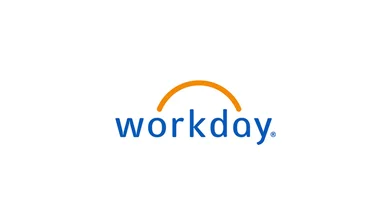Article Directory
The Mathematical Fiction of Greece’s 13-Hour Workday
The headlines are designed for outrage. "Greece Passes 13-Hour Workday Law." The immediate reaction, particularly in Western labor markets, is one of shock. It sounds, as the Greek opposition party Syriza labeled it, like a "legislative monstrosity" that pushes the country back to a "labour middle age." The ensuing strikes and protests seem to confirm this narrative, with headlines announcing that Greece passes 13-hour workday law, sparking strikes and backlash.
But outrage is a poor substitute for analysis. When you strip away the rhetoric and look at the numbers presented by the Greek government, a different picture emerges—one that is far more clinical, calculated, and, on its surface, almost reasonable. The law allows for a 13-hour workday, yes, but only for the private sector. It's capped at 37 days per year. The standard 40-hour week remains the default, and total annual overtime is limited to 150 hours. Crucially, the government insists participation is voluntary, and any overtime hours are compensated at a 40% premium.
On a spreadsheet, this model works perfectly. An employee, presented with a choice, can opt into extra hours with a single employer—avoiding a commute to a second job—and see a significant pay increase. The system appears to be a logical, voluntary exchange of time for money, designed to align Greek legislation with modern EU directives on flexible work. The problem is that labor markets don't operate on a spreadsheet. They operate on leverage. And that is the one variable the official narrative conveniently omits.
The Missing Term in the Equation
The entire premise of this law hinges on the word "optional." For a choice to be real, the parties involved must have a reasonably balanced degree of power. This is where the Greek government's argument begins to fray, and my analysis suggests the entire structure is built on a flawed assumption. We need to introduce the data point that changes the entire calculation: Greece's unemployment rate.
As of the latest available figures, unemployment in Greece stands at 8.1 percent. While a significant improvement from the staggering 28% seen during the debt crisis, it remains substantially elevated compared to the EU average of 5.9%. To be more exact, it's about 37% higher. This isn't just a number; it's a direct measure of labor market slack and, by extension, a proxy for employer leverage. In a market with a surplus of labor, the power to negotiate terms does not lie with the employee. The union argument that employers have the upper hand isn't just political posturing; it's a reflection of basic supply and demand.

Think of this "optional" system as a financial instrument offered in a distressed market. A company might offer its bondholders a debt-for-equity swap that looks voluntary on paper. But when the alternative is a likely bankruptcy where the bondholders get nothing, is the choice truly free? The context of coercion removes the optionality. Similarly, when an employee is told they can’t be fired for refusing overtime (a protection that unions argue is unenforceable without robust workplace inspections), but they know thousands are unemployed and willing to take their place, the pressure to "volunteer" becomes immense. Is an employer really going to promote the person who consistently refuses to help meet "urgent company needs"?
I've looked at hundreds of corporate filings and market analyses, and this is the part of the Greek proposal that I find genuinely puzzling. The law seems engineered to solve a problem for employers—labor flexibility and staffing for peak demand—while being marketed as a benefit for employees. This is a classic case of narrative-data divergence. The qualitative data from unions and workers on the ground, who describe a culture of over-exploitation, simply doesn't align with the government's sanitized, quantitative model of free choice. The model ignores the most critical variable: fear.
This new law is like a sophisticated algorithm with a single, fatal bug in its code. It’s designed to optimize efficiency but fails to account for the human element of duress. The legislation also includes provisions for fast-track hiring via an app and two-day contracts, further indicating a move toward a precarious, on-demand workforce. Are these tools for employee empowerment or for creating a labor pool that can be scaled up and down with minimal friction and maximum leverage for the employer? The data points to the latter.
The Illusion of Optionality
Ultimately, the debate over Greece’s new labor law is not about the number 13. It is about the definition of the word "voluntary." The government has presented a neat, contained equation where a longer workday results in higher pay. But they have failed to show their work. The full equation must include the country’s unemployment figures, its history of weak labor protections, and the well-documented reality that Greek employees already work more hours for less pay than most of their European counterparts.
When you factor in these variables, the conclusion is clear. This legislation is not an expansion of choice; it is a codification of an existing power imbalance. It provides a legal framework for a system where "optional" requests are functionally indistinguishable from demands. For a subset of the Greek workforce, this law won't feel like an opportunity to advance their careers. It will feel like a mandate to run faster just to stay in the same place. The numbers, when viewed in their proper context, don't lie. This is a choice on paper only.
